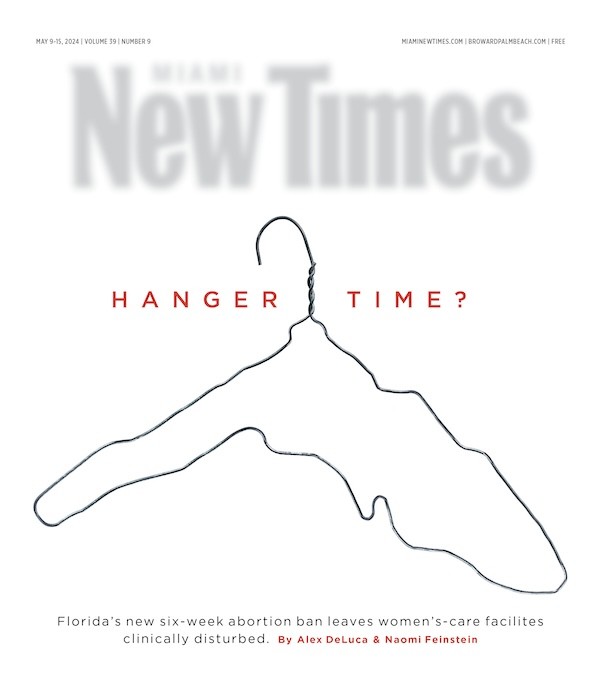Acting as a preview to the yearly film festival being held in March 2016, GEMS boasts a small collection of films screening at the Tower Theater daily starting Thursday through Sunday. "GEMS is the name we came up with to best
The Clan may just be one of the most demented movies Argentina has ever produced.
tweet this
Compared to last year's MIFFecito
El Club, 9:15 p.m. Friday, October 23
Pablo Larraín is back in true form with El Club, a film that's as miserably hilarious as it is scathingly confrontational about the state of the Catholic church and the men it protects. El Club — which places its lens on four former priests and an ex-sister of the church who have been sent to a beachy retreat as both cover-up and punishment for crimes they commit — isn't afraid of keeping its audience at a distance with its content.
There's constant discussion of the crimes these men and woman commit: pedophilia, sexual assault, kidnapping, murder. They all go about their lives in ignorance of their crimes, treating the place like a spa. The personalities of these individuals are matched with an almost off-putting aesthetic; shots of the beach that seem almost washed-out and digital night shots full of noisy imagery. Even its politics
The film rarely misses a beat in offering the actors, especially Larraín regulars Alfredo Casto and Antonia Zegers, scenes that allow them to show off their skills. Delivering unsympathetic characters that are fascinating to watch regardless of their vitriolic ways is exactly why El Club is such a success and why Larraín remains one of the most promising Chilean directors around. (J.B.)
To say that narratives about colonialism and the dichotomy of native and
That criticism of colonialism can feel heavy-handed at times, especially when the film dives into religious discussions and attempts to say something about false messiahs and the disastrous ways that white men have infected an untouched primitive world with the church. Stylistically, however, the black-and-white photography is a nice touch, removing as much of the Amazon's beauty as possible to make it the menacing and lonely place the film needs it to be.
My Golden Days, 2 p.m. Saturday, October 24.
"I'm not Ulysses. I have no nostalgia for my country," anthropologist Paul Dédalus (Mathieu Amalric) says to a lover in Greece. With a title like My Golden Days, you might be forgiven to think this is indeed a nostalgia piece, but instead it's a film by Arnaud Desplechin, a French filmmaker who understands how to pick apart sentiments to their core. Focusing on the idea of first love, Desplechin puts together a beautifully shot movie told in retrospect by Paul, who sometimes has trouble remembering things.
Paul's memories bring forth a troubled childhood with an abusive father and a mother he never liked. When an adolescent Paul (Quentin Dolmaire) discovers love, he lingers on it, conjuring up the complex and intriguing Esther (Lou Roy-Lecollinet). She goes from sleepy-eyed confidence to tearful insecurity. Roy-Lecollinet gives a poignant performance — you can almost sense her heart blossoming. The film is much more than a melodrama; with a mature psychology, it explores what these characters carry from youth into adulthood.
Beyond Roy-Lecollinet's performance, the actor who portrays the elder Paul, Amalric, is the film's secret weapon, which is finally unleashed during the
The Clan, 6:45 p.m. Saturday, October 24.
The Clan may just be one of the most demented movies Argentina has ever produced. It's a wide-eyed stare into the abyss of the legacy of its "Dirty War" of the '70s and '80s, where
Director Pablo Trapero uses sickly black humor to recount the Puccio family's crimes. He uses an often-steely palette of icy blues and grays. Fitting right in are the wide gray eyes of lead actor Antonia Bengoechea, who also sports a shock of white, frazzled hair. Despite the perky soundtrack with the Kinks' "Sunny Afternoon" playing a recurring role and the film's kinetic pace, Bengoechea's sinister performance is the glue that holds The Clan together. He gives the monstrous Puccio a riveting magnetism as he gaslights his wife and kids to unquestioningly follow his schemes, which will induce uncomfortable titters from the audience.
The editing and chronology might seem confusing to some, but The Clan's purpose is not to tell a thrilling whodunit story. It's about reckoning with a dark past, and that means taking a hard look at a horrible history and presenting its twisted stupidity for what it was: an aberrant notion of domesticity. (H.M.)
The Assassin, 2:45 p.m. Sunday, October 25.
After spending much of the eight years since his last film, The Flight of the Red Balloon, entrenched in research, Taiwanese filmmaker Hou Hsiao-hsien has returned with The Assassin, a Wuxia film that takes place in eighth-century China. Hsiao-hsien worked with four other writers to get the details of the later years of the Tang Dynasty just right, making the result a remarkable piece of storytelling that is as enthralling as it is detailed.
Shu Qi plays Yinniang, the titular assassin. Abducted as a child by a former princess turned militant nun (Sheu Fang-
The film has a look and sound that makes the plot feel almost secondary. Hsiao-hsien is known for holding unedited shots for long periods of time, and his cinema is sometimes unfairly











